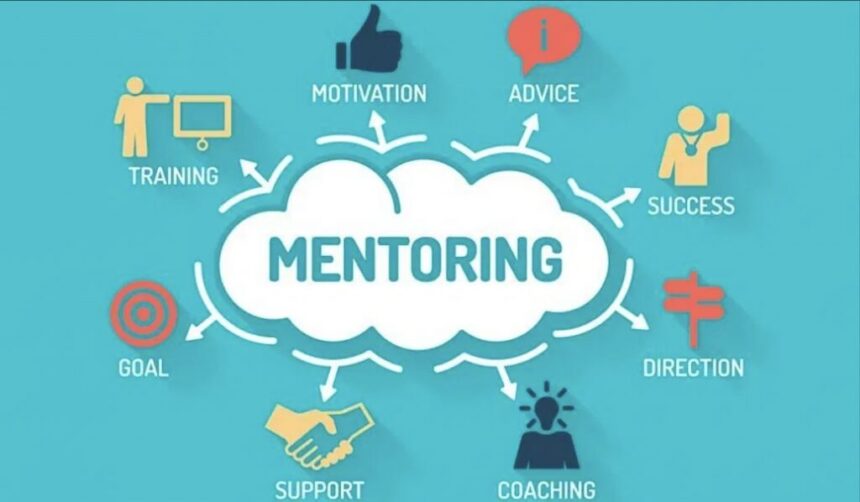The Role of Mentorship
Picture this: you’re at the start of your career, full of ambition but unsure of the next step. You’ve got skills, maybe a degree, and a whole lot of drive, but the path ahead feels like a maze. That’s where mentorship comes in—a guiding hand that doesn’t just point you in the right direction but helps you navigate the twists and turns. For me, mentorship has been the secret sauce behind my career growth, offering wisdom, connections, and confidence when I needed it most. In this article, I’ll share how mentors have shaped my journey, why they’re a game-changer, and how you can make mentorship work for you. Whether you’re just starting out or looking to level up, this is for you.
Why Mentorship Matters
Mentors are like career GPS—they don’t drive for you, but they help you avoid dead ends. In my early days as a [insert your field, e.g., digital marketer], I was eager but clueless about things like pitching to clients or managing workplace politics. My first mentor, a seasoned professional I met at a networking event, broke it down for me. She didn’t just share tips; she asked tough questions that made me rethink my approach—like why I was chasing trends instead of building a niche. Studies back this up: a 2019 survey by LinkedIn found that 82% of professionals with mentors felt more confident in their career decisions.
Mentorship isn’t just about advice. It’s about perspective. Mentors bring years of experience, helping you see the bigger picture. They’ve been through the failures you’re scared of and can show you how to bounce back. For instance, when I bombed a major project presentation, my mentor didn’t sugarcoat it—he walked me through what went wrong and how to nail it next time. That kind of feedback is gold; it’s not something you get from a YouTube tutorial.
How Mentors Shaped My Path
Let’s get personal. My career growth owes a lot to three mentors who each played a unique role. First was Tolu, a manager during my NYSC year in Lagos. She saw my potential in content creation and pushed me to take on projects I thought were out of my league, like leading a social media campaign for a local startup. Her belief in me built my confidence, and the skills I gained—strategy, teamwork, analytics—are still my foundation today.
Then came James, a tech founder I connected with at a meetup in Abuja. He taught me the business side—how to negotiate contracts, price my services, and spot opportunities in Nigeria’s growing digital economy. His advice to “test small, scale fast” became my mantra when I launched my first side hustle, a blog that eventually landed me brand deals. This ties back to what I learned during NYSC: small projects, like freelancing, can spark big growth if you’re strategic.
Finally, there’s Aisha, a career coach I met online through a WhatsApp community. She helped me refine my personal brand, from my LinkedIn profile to how I pitch myself in interviews. Her feedback was tough but fair—cutting fluff from my CV and focusing on measurable wins, like increasing a client’s Instagram engagement by 25%. Her guidance made me stand out in a crowded job market.
Finding and Building Mentorship Relationships
You might be thinking, “This sounds great, but where do I find a mentor?” It’s not as hard as it seems. Start where you are. During my NYSC, I met mentors at events like workshops and community projects. Platforms like LinkedIn or X are goldmines too—follow leaders in your field, comment on their posts, and don’t be afraid to send a polite DM. I landed my second mentor by messaging him after reading his article on tech trends in Nigeria. Keep it simple: “Hi, I loved your post on X. I’m new to [field] and would appreciate any advice on breaking in.”
Once you connect, build the relationship. Show up prepared—ask specific questions, like how to handle a tricky client or upskill for a role. Respect their time; a quick coffee chat or 15-minute Zoom is enough. And always follow up—send a thank-you note or update them on your progress. I still email Tolu every few months to share wins, like landing a new gig, and she’s always happy to hear from me.
Challenges and How to Overcome Them
Mentorship isn’t all smooth sailing. Sometimes, you’ll hit bumps—like mismatched expectations or mentors who ghost. Early on, I had a mentor who gave vague advice and never followed through. I learned to set clear goals upfront, like asking for feedback on one project per month. If it’s not working, politely pivot to someone else. Another challenge is finding mentors who get your context. As a Nigerian, I needed mentors who understood local realities—like navigating power outages or pitching to clients in Lagos. That’s why connecting with local professionals, like those in tech hubs in Ibadan or Enugu, was key.
Dont miss: Building a Tech Career Without a Degree in Nigeria
Making Mentorship Work for You
To get the most out of mentorship, be proactive. Treat it like a partnership, not a handout. Here’s what worked for me:
- Set Goals: Want to learn SEO or leadership? Tell your mentor so they can tailor advice.
- Act on Feedback: When James suggested I learn basic coding, I took a free Python course online. It paid off when I automated a client’s reporting process.
- Give Back: Share your skills or network. I helped Aisha with a blog post, which strengthened our bond.
- Diversify: Don’t rely on one mentor. Each of mine brought something different—confidence, business smarts, personal branding.
Track your progress too. After six months with Aisha, I measured my growth: two new clients, a 15% salary bump, and a speaking gig at a local tech meetup. Numbers don’t lie—they show mentorship’s real impact.
Conclusion
Mentorship isn’t just a nice-to-have; it’s a career accelerator. From building confidence to opening doors, mentors have been my cheat code to success. Whether it’s through NYSC connections, online communities, or local meetups, finding the right mentor can transform your path. So, take that first step—reach out, ask questions, and show up ready to learn. Who’s the one person you could contact today to kickstart your mentorship journey? Trust me, that one conversation could change everything.







I do trust all the ideas youve presented in your post They are really convincing and will definitely work Nonetheless the posts are too short for newbies May just you please lengthen them a bit from next time Thank you for the post